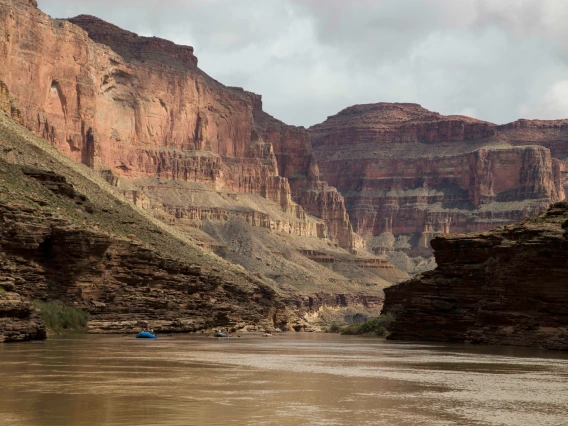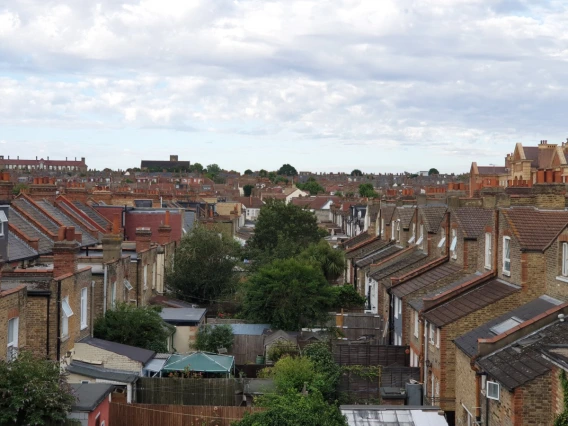Our world-class urban planning faculty has extensive training, education, and experience in planning practice and research. Our forward-looking, solution-oriented, and engaged approach to urban planning education, research, and mentorship is helping push the field in new and exciting directions.
Arlie Adkins, PhD, Assistant Professor of Urban Planning, researches health and safety disparities related to urban transportation systems. He also has an appointment in the College of Public Health. He recently completed a five-year CDC grant on physical activity and health is currently the co-PI of the University of Arizona’s portion of the National Institute for Transportation and Communities (NITC). He teaches Urban Transportation Planning and the capstone planning projects course.
Kristina Currans, PhD, Assistant Professor of Urban Planning, focuses her research on transportation and land use integration, economic impacts of transportation investment, and improving data and analytical methods for site level transportation impact analysis. She was recently awarded a two-year grant to operationalize the link between parking supply and vehicle use in California. Her courses include Planning Methods and Transportation & Land Use.
Nicole Iroz-Elardo, PhD, Research Assistant Professor of Urban Planning, works at the intersection of built environment, health, and transportation. Her research focuses on health equity and monetizing the health impacts and transport and built environment interventions.
Ladd Keith, PhD, Assistant Professor of Planning and Chair of Sustainable Built Environments, researches the intersection between urban planning and climate change and explores how climate action planning can make more sustainable and resilient cities. He has worked with diverse cities across the U.S. on climate action planning across a range of plans, policies, and regulations. He teaches Public Participation and Climate Action Planning.
Shujuan Li, PhD, Associate Professor of Landscape Architecture & Urban Planning, has research efforts in the integration of spatial analysis and modeling with GIS for urban and environmental studies. Her research interests include landscape ecology, ecological planning, spatial data science, and ecosystem services. She teaches Land Use Planning Analysis, Geodesign Studio, and GIS courses.
Arthur C. Nelson, PhD, FAcSS, FAICP, Professor of Urban Planning and Real Estate Development, has made significant contributions in the areas of real estate analysis, smart growth, infrastructure financing, transportation and economic development outcomes, and metropolitan development patterns. Dr. Nelson is a Fellow of the Academy of Social Sciences as well as the American Institute of Certified Planners. He teaches courses in Real Estate Development and Urban Planning.
Gary Pivo, PhD, Professor of Planning, works in the areas of responsible property investing, urban form, and sustainable cities. He holds professorships in the Planning Degree Program and the School of Natural Resources at the University of Arizona where he teaches courses on the land development process and sustainable cities. Pivo’s research has been cited by scholars in many different fields including urban studies, transportation, environmental studies, planning, public health, engineering, geography, economics, and more.
Drew Sanderford, PhD, Associate Professor of Real Estate Development & Urban Planning, studies innovation and sustainability in the property markets and urban development process. He collaborates with financial economists, hydrologists, ecologists, and public policy scholars across an array of funded projects. His case oriented teaching frequently engages practitioners to help students process, understand, and practice with decision-making. Dr. Sanderford teaches Real Estate Finance and Planning Theory and Practice.
Philip Stoker, PhD, Assistant Professor of Urban Planning and Landscape Architecture, researches water sustainability and the connections between land use planning and water management. He has conducted research internationally, working on projects with the World Health Organization, Parks Canada, the National Park Service, and the Whistler 2010 Olympics. His research has been featured in the Journal of the American Planning Association and Landscape and Urban Planning among other academic publications. Dr. Stoker teaches Introduction to GIS and Sustainable Urban Development and Design.
To see the complete listing of all CAPLA faculty and staff, visit the directory page.

CAPLA Planning Faculty, Recent Alumna Study TUSD’s Climate Impact
A report led by Associate Professor Philip Stoker and alumna Alyssa Fink delivers the most comprehensive climate assessment of Tucson Unified School District’s 2024 operations to date. The study establishes a greenhouse gas baseline and outlines strategies to reduce emissions, energy use and costs, supporting the district’s sustainability goals. Sponsored by Jobs With Justice, the project also highlights the impact of student-led, community-based research.

Lecture Recap | Essence: A Lecture by coLAB Studio
Speakers from coLAB studio discussed the intrinsic nature and indispensable quality that determines an individual's character as a designer.

Reimagining the Colorado River in the context of Water Management in Arizona | Lecture by Kathy Jacobs
The Colorado River is the backbone of water management in the southwest, serving seven states and Mexico. Ongoing drought conditions that are linked to climate change threaten Colorado River water deliveries to Arizona, but also provide an opportunity to rethink the allocation of water rights and to focus on a more sustainable approach to management.

Balancing Buyer Protections with Development Costs: A Panel Discussion on Arizona’s Construction Defect Liability Law
In this panel discussion, we will explore the impact of Arizona’s construction defect liability laws on multifamily development, with a particular focus on possible legislative reforms to better balance buyer protections with development costs. While construction defect liability laws provide important protections for buyers, there is a growing concern among researchers and housing advocates that, if overly restrictive, these laws can increase development costs and lower production.

Lecture Recap | Immersive Design: The Intersection of Site, Craft and Collaboration | A Lecture by Kevin Kudo-King
Kevin Kudo-King explored strategies for immersive design at the intersections of site, craft, and collaboration.

Low-cost housing in a high-cost city: London’s approach to affordable housing | Lecture by Kath Scanlon
London, an undisputed global city, is well known for having some of the world’s most expensive housing but also boasts a substantial amount of low-cost social and affordable housing. This talk sketches the historic roots of affordable housing in London, explains how it is currently built and operated, and explores current political and practical challenges—some of which are shared by Arizona cities despite their very different contexts.
